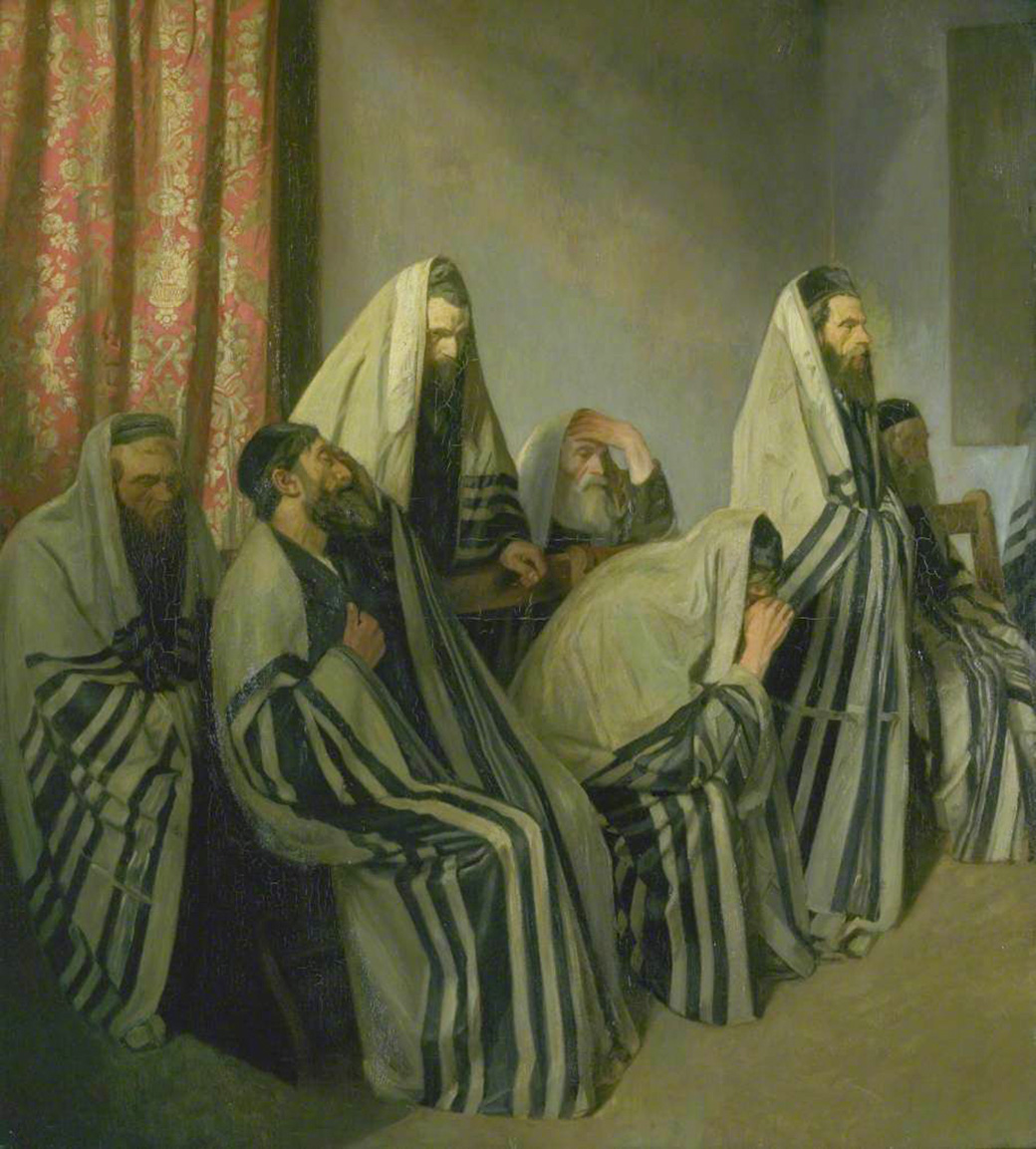Friday after Ash Wednesday: Isaiah 58:1-9a, Matthew 9:14-15
In today’s readings, Isaiah takes on the custom of fasting head-on. Then, in the gospel reading, John the Baptist’s disciples challenge Christ on fasting, but he uses it as a chance to reveal his own nature and thereby reflect on the entire purpose of fasting. The question of sincerity is at stake in both readings.
Isaiah is an unrelenting prophet. He delivers vividly clear images of Christ who will come, but also pulls no punches when it comes to calling out the unfaithfulness of his people. In today’s reading, he points out the hypocritical self-righteousness of the Jews:
They seek me day after day,
and desire to know my ways,
Like a nation that has done what is just
and not abandoned the law of their God;
They ask me to declare what is due them
pleased to gain access to God

Yes, as if they had done what is just, they want what is due to them. Oh, the arrogance. The question they ask is “why do we fast and you take no notice of it?” Isaiah schools them. He points out that while they put on the appearance of fasting (sackcloth and ashes), their deeds display that they aren’t living the fast. Much like Christ who will come, Isaiah wants to distinguish living the letter of the law from living the spirit of the law. Isaiah tells them what they should be doing while fasting (apart from abstaining from foods):
releasing those bound unjustly,
untying the thongs of the yoke;
Setting free the oppressed,
breaking every yoke;
Sharing your bread with the hungry,
sheltering the oppressed and the homeless;
Clothing the naked when you see them,
Jesus will emphasize these same points in his ministry. We can call them acts of charity. Many of us consider fasting mainly an act of deprivation, but Isaiah reminds us that the act of depriving ourselves of food is simply the first step — sharpening our senses, waking us up from the complacency of being well-fed — so that we can offer ourselves more fully to God by service to one another. But if we’re too absorbed in ourselves when we fast, all we think about is our hunger and discomfort. Alternatively, if we’re too concerned with showing others that we abide by the law, we look mournful and disheveled in order to broadcast our efforts to humble ourselves in front of God. Both of these pitfalls miss the entire point of fasting, which is the spirit of fully offering ourselves to God.
Isaiah is essentially asking his people, “Are you sincere in your faith?” Following God’s precepts is a whole-person effort, and He immediately knows if we are sincere. There’s an old saying, “Smith went to Mass every Sunday, but went to hell for what he did on Monday.” The idea, of course, is that simply going through the motions is not what God asks of us. So what about duty? Where does our obligation lie? Isaiah (and later, Jesus) is clear that our obligation is not to the rituals but to the spirit that the rituals are meant to bring us into. As the Catechism of the Catholic Church states, “Our duty toward God is to believe in him and to bear witness to him” (2087). Belief, faith, bearing witness (through testimony and good acts).
An interesting acceleration of these questions occurs in Matthew’s gospel today. The disciples of John the Baptist, who were by all accounts faithful in spirit as well as in the letter of the law, question Jesus about why his disciples weren’t fasting. Jesus uses this opportunity to talk not about fasting, but about his own divine nature. Like Isaiah, he presses the people about their sincerity, only this time in a more immediate way.
Jesus says, “Can the wedding guests mourn as long as the bridegroom is with them?” This image of Jesus as the groom and the Church as his mystical bride will be developed theologically in the years to come. More germane to our discussion, Jesus is gently telling John the Baptist’s disciples (who, we must remember, already heard from John that Jesus is the Messiah) that God is in their midst. If the goal of fasting is to attest to God in our bodies and our spirits, in a desire to be close to Him, then what place does it have when he’s already with you?
It’s like standing next to your father and shouting, “Oh, if my father was only here! I wish to be near my father!” It’s ridiculous. And here Jesus pushes on the sincerity of these questioners’ practice of fasting at that moment in time. If they sincerely desire unity with God, why are they fasting in front of Him as if He was not present? Or is their fasting yet again simply a ritual that they stubbornly hold onto?
Our faith demands that we bring our entire beings, including our spirit and our intellect, to bear on this world and the next. If we fast without acting in God’s love, we are not living out our faith. If we prioritize the niggly details of our fast over the presence of God Himself, then we are blindly following ritual and not recognizing the Spirit at work.
By being sincere in our fast — focusing on being close to God, doing his will — we can avoid these mistakes and begin to recognize when and where He is with us.